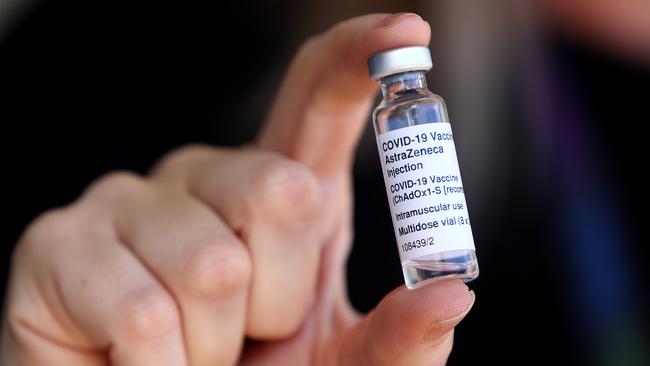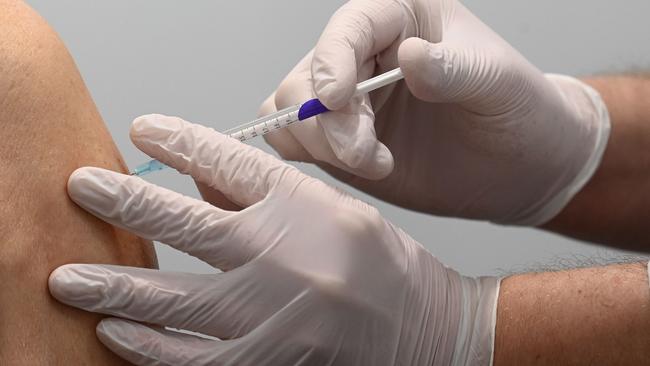Patrick Carlyon: AstraZeneca vaccine a case of risk vs benefit
While reports of blood clots linked to the AstraZeneca vaccine are alarming, you’re more likely to die from choking. And who avoids food for fear of choking?

Patrick Carlyon
Don't miss out on the headlines from Patrick Carlyon. Followed categories will be added to My News.
Planes crash all the time. But plane crashes don’t stop us from boarding planes.
The message is entrenched – that flying is safe, far safer than driving – despite the scene of wreckage scattered across a mountain.
This notion of perceptions versus realities is at the crux of vaccination discussions. It will help dictate rollout rates, as do reports of everyday side-effects which have stymied efforts to comprehensively vaccinate health workers across the country.
Caution – or plain fear – is understandable.
Reports of clots and deaths from the AstraZeneca vaccine are naturally alarming. Why choose something that might kill me?
The medical evidence keeps shifting. Long-held assumptions have been tilted. What was considered safe may not be so safe after all.
These are perceptions.
The reality is that an AstraZeneca jab is very unlikely to kill you.
Applying UK numbers, the likelihood of dying from clots after the AstraZeneca jab are about one in 800,000. Applying further criteria makes the risks of taking it for people 50 or over far lower than the risks of the disease.
It’s safer than flying – indeed, your risk of developing blood clots from long haul flying is higher than the risk of clots from AstraZeneca.

It’s safer than driving. Or riding a bike.
Statistically, if you had the jab yesterday, it was one of the safest things you did yesterday. You were more likely to die from choking on food or falling down stairs. And who avoids food for fear of choking?
The Morrison Government’s decision to halt AstraZeneca shots for under 50s makes medical sense. Other countries have halted the jabs for under 30s. The risk of the disease for younger people is smaller than the risk of dying from the jab.
Still, it’s human nature to wonder if you’ll be the one.
Nineteen deaths in the UK from blood clots, as reported, means 19 lives have ended by a choice which was supposed to keep the deceased safe.
Statistics don’t offer much comfort alongside scenes of avoidable grief, such as the family of Neil Astles, 59, who was “extraordinarily unlucky”, according to his sister, Dr Alison Astles.
This is the challenge faced by the Morrison Government in coming weeks. It must sell the line that vaccinations are far safer than riding a bike or going for a swim.
As Mr Astles’ grieving sister said, in advocating vaccination programs: “Every medicine we take is a balance of risk and benefits.”
As is boarding a plane or getting in the car.





